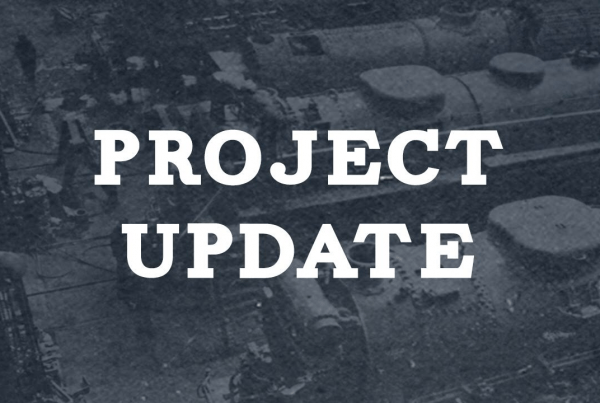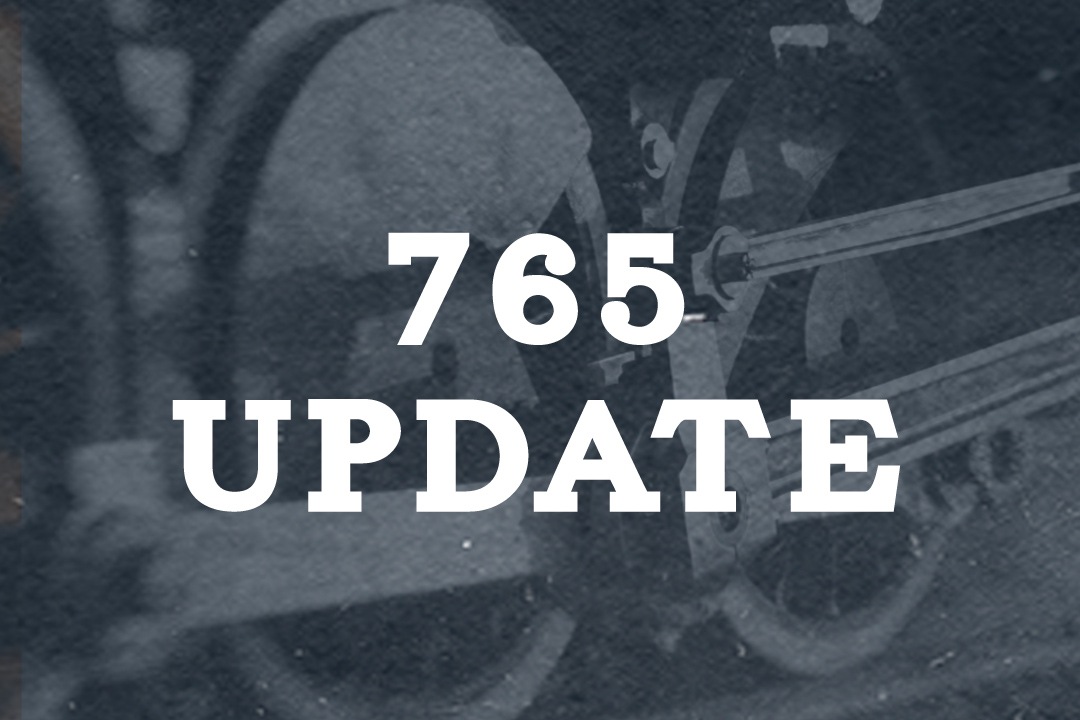Submitted by Steve Winicker.
LAST WEEKENDS SHOP ACTIVITY
This was a somewhat short weekend, but a fair amount of work was accomplished. Saturday saw some rod cleaning and other small projects. Sunday, we had a good crew and unloaded most of the stuff in the 701, rescued the eye wash station from the auxiliary tank and dumped the ash pan and firebox on the 765. George removed the firebox door foot pedal and claims it will come back rebuilt, working perfectly each time and improving the aim of those with a shovel. Much thanks to all who were able to assist. Oh! In case you did not hear the 765 is safely back at the shop.
UPCOMING ACTIVITIES
Next weekend we may get the chance to remove arch brick, blow out the flues and other annual shut down events as well as straighten up the shop and put stuff away.
SAFETY SENSE
It is estimated that each year about 4,000 injuries associated with electric extension cords are treated in hospital emergency rooms. About half of the injuries involve fractures, lacerations, contusions or sprains from people tripping over extension cords. It is also estimated that about 3,300 residential fires originate with extension cords each year, killing 50 people and injuring about 270 others. The most frequent causes of such fires are short circuits, overloading, damage and/or misuse of extension cords.
The following are some tips for the safe use of extension cords….
- Use extension cords only when necessary and only on a temporary basis. Do not use extension cords in place of permanent wiring.
- Do not remove the prongs of an electrical plug. If plug prongs are missing, loose, or bent, replace the entire plug.
- Do not use an adapter or extension cord to defeat a standard grounding device. (e.g., Only place three-prong plugs, or cords with polarized prongs in three-prong outlets. Do not three prong plugs to fit in a two-prong outlet.
- Use extension cords that are the correct size or rating for the equipment in use. The diameter of the extension cord should be the same or greater than the cord of the equipment in use.
- Only use cords rated for outdoor use when using a cord outside.
- Keep electrical cords away from areas where they may be pinched and areas where they may pose a tripping or fire hazard (e.g., doorways, walkways, main traffic corridors, etc.).
- Always inspect the cord prior to use to ensure the insulation isn’t cut or damaged. Discard damaged cords, cords that become hot, or cords with exposed wiring.
- Never unplug an extension cord by pulling on the cord; pull on the plug.
Extension cords are extremely useful and frequently used but must be used safely. Cord safety also applies to AV equipment such as speakers and microphones which will be utilized with the upcoming Santa Train operation.


